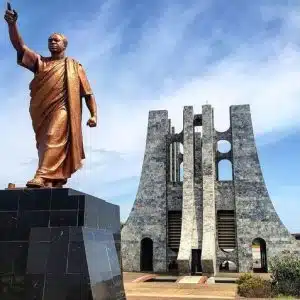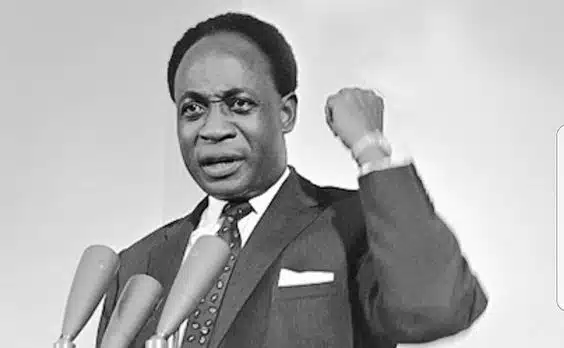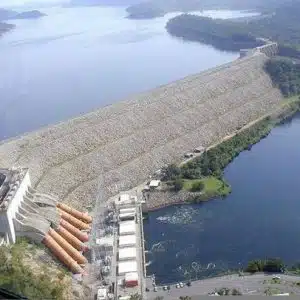DR. Kwame Nkrumah: Architect of Ghana’s Independence and a Beacon for Ghana Tours
Introduction:
In the annals of African history, one name stands out as a beacon of independence, visionary leadership, and pan-Africanism—Kwame Nkrumah: Ghana’s Legacy. As the first President of Ghana and a key figure in the fight against colonialism, Nkrumah’s legacy extends far beyond political boundaries. This blog delves into the life, achievements, and enduring influence of Kwame Nkrumah, offering a glimpse into the rich history of Ghana and its significance for those embarking on a Ghana tour.
Early Life and Education:
Born on September 21, 1909, in Nkroful, Gold Coast (now Ghana), Kwame Nkrumah was nurtured by a strong sense of identity and purpose from an early age. His education, both in Ghana and abroad, laid the foundation for his intellectual prowess. Nkrumah’s journey began at Achimota School in Accra, and he later pursued higher education in the United States and the United Kingdom, where he honed his political ideologies and fervor for African liberation.
Return to Ghana and Political Ascendance:
Upon returning to the Gold Coast in 1947, Nkrumah was met with a genuine political atmosphere. His charisma and visionary leadership quickly propelled him to the forefront of the struggle for independence. Nkrumah founded the Convention People’s Party (CPP) and spearheaded the fight against British colonial rule, advocating for self-determination and the emancipation of African nations.
In 1957, the Gold Coast gained independence, and Kwame Nkrumah became the first Prime Minister and later the President of the newly-formed Ghana. His inauguration speech echoed with the words, “At long last, the battle has ended! And thus, Ghana, your beloved country, is free forever!” This historic moment marked the beginning of a new era for Ghana and its people.
Pan-African Vision:
Kwame Nkrumah: Ghana’s Legacy was not content with Ghana’s independence alone. His vision extended beyond national borders to encompass the entire African continent. Nkrumah fervently championed pan-Africanism, advocating for unity among African nations to collectively combat the challenges of neocolonialism and imperialism. additionally, his efforts culminated in the creation of the Organization of African Unity (OAU) in 1963, a landmark initiative fostering solidarity among African nations.
Economic Development and Infrastructure:
Nkrumah’s leadership was marked by ambitious development programs aimed at modernizing Ghana’s infrastructure and economy. The construction of the Akosombo Dam, the establishment of the Tema Harbor, and the creation of the Volta River Authority were pivotal projects that laid the groundwork for Ghana’s economic growth. Nkrumah’s commitment to socialism and industrialization reflected his determination to uplift all Ghanaians’ living standards.
Downfall and Legacy:
However, Nkrumah’s ambitious projects and socialist policies faced challenges, leading to political unrest and eventual upheaval. In 1966, while Nkrumah was on a state visit to China, a military coup ousted him from power. He spent his remaining years in exile, passing away in Bucharest, Romania, in 1972.
Despite the challenges and controversies, Kwame Nkrumah’s legacy endures. His vision for a united and prosperous Africa remains an inspiration, and his impact on Ghana is indelible. Today, Ghanaians and visitors alike can explore the historical landmarks associated with Nkrumah’s life and the fight for independence.
Ghana Tour Experience:
For those embarking on a Ghana tour, the journey is incomplete without delving into the historical sites that narrate the story of Kwame Nkrumah. A visit to the Kwame Nkrumah Mausoleum in Accra is a poignant experience, offering insight into his life and the struggle for independence. The mausoleum is a tribute to Nkrumah’s enduring legacy, surrounded by beautiful gardens and reflective spaces.
Additionally, travelers can explore the Independence Arch and Black Star Square, both symbolic landmarks representing Ghana’s journey to nationhood. These sites offer a tangible connection to the history that unfolded under Nkrumah’s leadership.
In conclusion:
We can’t overlook Kwame Nkrumah’s impact on Ghana and the African continent. His legacy as a visionary leader, advocate for independence, and proponent of pan-Africanism continues to shape the narrative of Africa’s journey toward unity and prosperity. Also, for those embarking on a Ghana tour, delving into Nkrumah’s history adds a profound layer to the exploration of this culturally rich and historically significant nation.
However, as you traverse the landscapes of Ghana, let the spirit of Dr. Kwame Nkrumah guide you through the historical landmarks that bear witness to the nation’s struggle, triumphs, and enduring quest for a united and prosperous Africa.



I loved even more than you will get done right here. The overall look is nice, and the writing is stylish, but there’s something off about the way you write that makes me think that you should be careful what you say next. I will definitely be back again and again if you protect this hike.